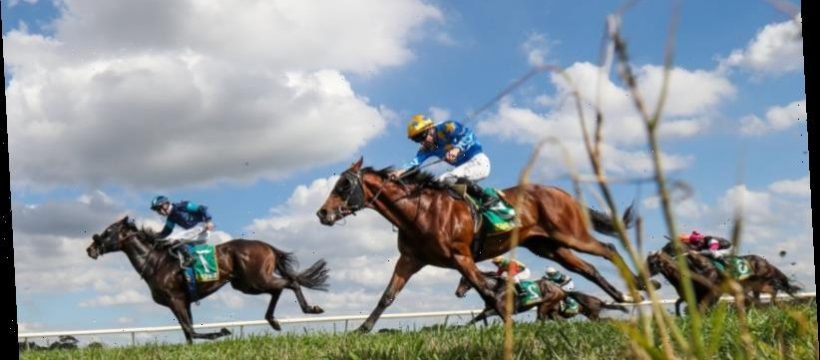Melbourne Racing Club chairman Peter Le GrandCredit:AAP
Mr Le Grand said he was "absolutely appalled and disgusted" by the footage, but did not believe it would deter tens of thousands of punters from Caulfield Racecourse, or the spring racing carnival.
But his comments were at odds with Andrew Nicholl, head of the Melbourne-based Australian Trainers' Association, who said "not every horse is capable of being rehomed".
He said he was also "shocked and horrified" at the footage and did not want to defend the abhorrent actions, but added horses could become "savage" in retirement and require large resources to be kept alive.
"We’ve got so many horses and there is only so much capacity to take them. That is the fundamental issue that surrounds this.
"They are 500 kilo beasts and while most have good temperaments some can't be rehomed because of their character. There is also a lack of availability, the number of people who can adopt a horse."
"The real question is how we meet society's expectations," Mr Nicholl said.
Racing Victoria said on Friday morning it would prioritise an audit of horses that have not raced in the past 18 months in response to the disturbing allegations.
Victorian Racing Minister Martin Pakula said "the fact is some" horses end their lives in an abattoir or knackery, but that it was the authority’s "determination" to rehome every healthy retired racehorse.
Victoria’s racing minister Martin Pakula says “every horse should be traced from foal to the end of its life”. Credit:Joe Armao
"Every horse should be traced from foal to the end of its life, that doesn’t happen at the moment," Mr Pakula told ABC radio on Friday morning.
"Even if Racing Victoria can say with certainty what happens to a racehorse once they are retired, what no one can say with certainty is what might happen with them two years or five years later … when they are no longer within the sight of racing authorities anywhere in the country."
Former Victorian premier, vet and racing buff, Denis Napthine, said the government needed to conduct "appropriate inspections" at knackeries to ensure animals weren’t being mistreated, but urged people not to boycott racing over the shocking allegations.
Victorian Racing Club chief executive Neil Wilson said "the welfare of horses is the responsibility of everyone associated with the industry and none of us can walk away from what was shown [on Thursday night]."
Six-time Melbourne Cup winner Lloyd Williams said he found the ABC footage appalling.
"I look out my window here and see my old horses enjoying their life," he said on Friday. "I am old. I have had racehorses for almost 60 years. So you can imagine how appalling the scenes were to me.
"There is not adequate words for how disgraceful the scenes were."
Trainers and breeders were quick to distance themselves from the scandal on Friday, insisting the industry is much better regulated in Victoria than Queensland.
Still from ABC’s 730 investigation into the slaughter of racehorses.Credit:ABC
In 2012, footage emerged of several horses being killed at the Laverton Knackery, in Melbourne’s west, with at least one animal tied up and dragged along concrete while apparently still alive.
Godolphin Australia, under the helm of trainer James Cummings, grandson of Bart, has a "lifetime care policy" for its racehorses.
Managing director Vin Cox said he would "absolutely welcome" an audit of retired Victorian horses.
"That info would tell us a lot."
Racing Victoria chief executive Giles Thompson backed calls for a national register to track the movement of horses once they leave the racing industry.
"We will be prioritising the activities detailed in our three-year equine welfare strategic plan released this year including an audit of Victorian horses that have not raced in the past 18 months but are not listed as retired with Racing Australia," Mr Thompson said.
"Abattoirs and knackeries are regulated by state governments and we expect those authorities to ensure animal welfare standards are maintained and compliance is strictly enforced."
Melbourne property veteran and animal welfare advocate Michael Drapac said horse breeding should be reduced by 40 to 50 per cent and financial penalties for owners who do not rehome retired horses.
"The only measure of success in the industry is how do we treat our slowest horse," he said.
with Rachael Houlihan
Source: Read Full Article



